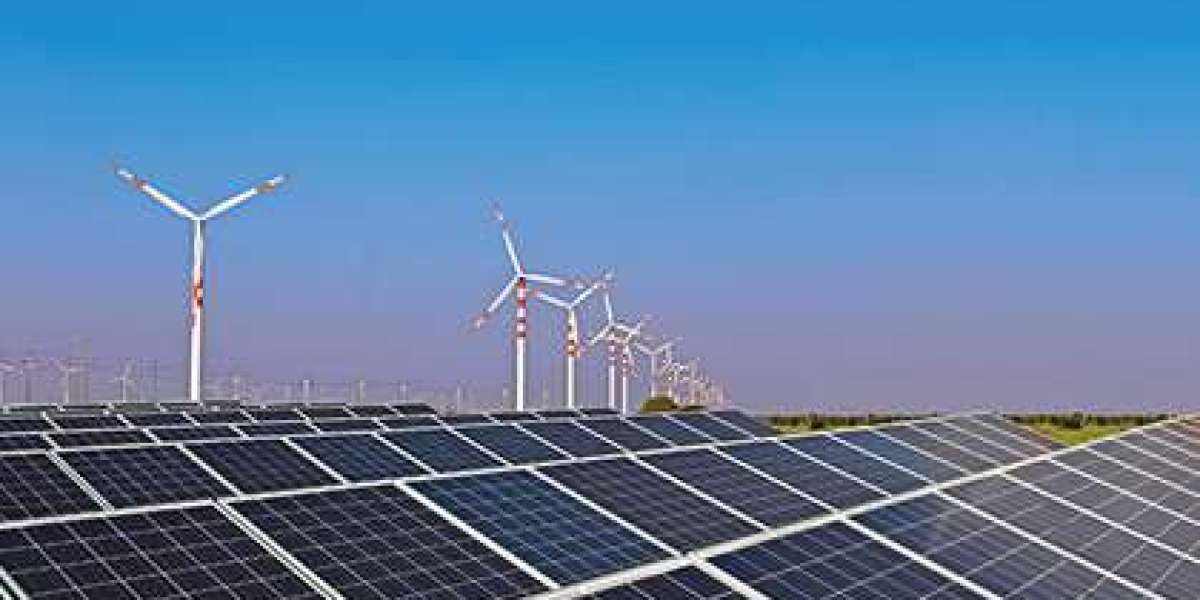As the world shifts toward more sustainable energy solutions, solar power has emerged as one of the most effective and eco-friendly alternatives to traditional energy sources. For homeowners looking to reduce their carbon footprint, cut energy costs, and increase property value, solar energy is a smart choice. Whether you're building a new home or considering upgrading your existing system, there are numerous solar energy solutions available to meet your needs. In this article, we'll explore the best solar energy solutions for your home, helping you make an informed decision on the right system for your property.
1. Types of Solar Energy Solutions
The solar energy market has evolved over the years, and today, there are several types of solar energy solutions available for homeowners. Understanding the differences between these solutions is the first step in choosing the right one for your home.
a. Solar Panels (Photovoltaic Systems)
The most common type of solar energy solution for homes is photovoltaic (PV) systems, which consist of solar panels that capture sunlight and convert it into electricity. These systems can be installed on the roof of your home or on the ground, depending on the available space and sunlight exposure.
PV solar panels are highly efficient and can generate enough power to meet the energy needs of most households. They are ideal for homeowners who want to significantly reduce their reliance on grid electricity. The amount of energy produced by the panels depends on factors such as the size of the system, the location of the home, and the amount of sunlight the area receives.
b. Solar Roof Tiles
An alternative to traditional solar panels, solar roof tiles (also known as solar shingles) are integrated into the roofing material itself. These tiles function as both roofing material and solar panels, making them an aesthetically pleasing option for homeowners who want to keep the look of their home intact while generating clean energy.
While solar tiles can be more expensive than traditional solar panels, they offer the advantage of a seamless installation that blends into the home’s architecture. Additionally, solar tiles are durable and can last as long as traditional roofing materials, providing long-term value.
c. Solar Water Heating Systems
Another solar energy solution for your home is a solar water heating system. These systems use solar energy to heat water for household purposes, such as bathing, cooking, and cleaning. Solar water heaters typically consist of solar collectors, a storage tank, and a system to circulate the water.
Solar water heating systems can significantly reduce your utility bills, especially if you use a lot of hot water. They are ideal for homeowners who live in sunny regions and are looking to lower their water heating costs. Additionally, these systems have relatively low maintenance requirements, making them a cost-effective solution for homeowners.
d. Solar Batteries and Energy Storage Systems
One of the challenges of solar energy is that it is intermittent – the sun doesn’t always shine, especially during the night or cloudy days. This is where solar batteries and energy storage systems come into play. These systems allow you to store excess energy generated by your solar panels during the day for use at night or during periods of low sunlight.
By adding a battery to your solar system, you can maximize your energy independence and reduce your reliance on the grid. Many solar battery systems are designed to work seamlessly with solar PV systems, allowing you to continue powering your home even when the sun isn’t shining. Some homeowners use these systems as backup power sources during emergencies.
e. Hybrid Solar Systems
A hybrid solar system combines the benefits of a traditional grid-tied solar system with battery storage. This type of system allows homeowners to generate their own electricity, store excess power, and still be connected to the grid for backup when needed. Hybrid solar systems are especially beneficial for homeowners who want to maximize their energy independence and reduce their monthly utility bills.
Hybrid systems are ideal for homes in areas where grid reliability is an issue or for homeowners who want to completely eliminate their dependence on fossil fuels. They are also a good option for those who want to be prepared for power outages, as the system can continue to supply power during an outage if it’s equipped with a battery.
2. Factors to Consider When Choosing a Solar Energy Solution
When selecting the best solar energy solution for your home, several factors should be considered to ensure that you are making the most informed choice. These factors include:
a. Energy Needs
The first step in choosing a solar solution is determining how much energy your home consumes. If you have a large household with high energy needs, a larger solar system may be required. Solar energy professionals can help you calculate your energy needs and recommend the right system size based on your usage.
b. Roof Space and Orientation
Your roof space and its orientation to the sun play a critical role in the effectiveness of your solar system. Homes with a south-facing roof typically receive the most sunlight, making them ideal candidates for solar panel installation. If your roof is shaded by trees or buildings, it may not be the best location for solar panels.
For homeowners with limited roof space, solar roof tiles can be an excellent solution, as they don’t require additional space beyond what’s needed for roofing materials.
c. Budget and Financial Incentives
The initial cost of solar energy systems can vary widely depending on the type of system, the size of the installation, and the specific features. It’s important to establish a budget and research available financial incentives, such as federal tax credits, state rebates, and local utility incentives, which can help reduce the overall cost of installation.
Financing options, such as solar loans or power purchase agreements (PPAs), can also make solar energy more affordable by allowing homeowners to pay over time.
d. Climate and Sunlight Availability
The amount of sunlight your home receives will affect the efficiency and output of your solar system. Homes in sunny areas can generate more energy from their solar systems than those in regions with less sunlight. Before making a decision, assess your local climate and how much sunlight your home receives throughout the year.
3. Maintaining and Upgrading Your Solar System
Once you’ve installed your solar energy system, it's important to maintain it to ensure optimal performance. Regular cleaning of your solar panels, checking for any obstructions, and scheduling professional inspections can help your system run efficiently for years.
Over time, you may also want to consider upgrading your system, especially if your energy needs increase or if new technologies, like higher-efficiency solar panels or more powerful batteries, become available.
Conclusion
There are numerous solar energy solutions available to homeowners, each offering different benefits depending on your needs, budget, and the amount of sunlight your home receives. Whether you opt for a traditional photovoltaic system, solar roof tiles, solar water heating, or a hybrid system, solar energy can provide significant savings on your utility bills while helping you reduce your environmental impact.
If you are in search of a reliable and professional solar service provider to assist with your solar installation, SBell Mountain Solar offers customized solutions to help homeowners in the area make the most of renewable energy. From design and installation to ongoing maintenance and system upgrades, SBell Mountain Solar can help you harness the power of the sun and secure long-term energy savings for your home.








